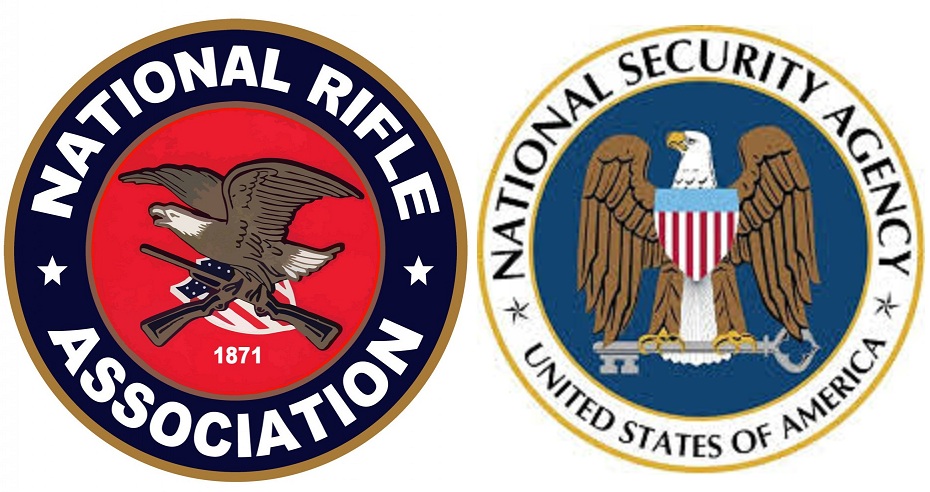The NRA’s NSA Moment
August 22, 2013 by Sam Rolley
The National Rifle Association has been a steadfast vocal opponent to any gun-control proposal that involves a national gun owner database. But a report published by BuzzFeedon Wednesday indicates that the gun lobbying organization has compiled its own gun owner registry.

The NRA has, for years, been working to acquire gun permit registration lists from State and county offices, gather names of new owners by scouring the records for gun-safety classes taught by NRA-certified instructors and by buying lists of gun show attendees and subscribers to gun magazines and newsletters.
BuzzFeed contributor Steve Friess reports:
The result: a Big Data powerhouse that deploys the same high-tech tactics all year round that the vaunted Obama campaign used to win two presidential elections.NRA spokesman Andrew Arulanandam declined to discuss the group’s name-gathering methods or what it does with its vast pool of data about millions of non-member gun owners. Asked what becomes of the class rosters for safety classes when instructors turn them in, he replied: “That’s not any of your business.”Others in the business of big political data, however, say the NRA is using similar tools to those employed by the campaigns of its nemesis, President Barack Obama.“There are certainly some parallels,” said Laura Quinn, CEO of Catalist, a data analysis firm used by Obama for America. “The NRA is not only able to understand people who their members are but also people who are not their members. The more data they have, the more it allows them test different strategies and different messages on different people.”“Part of the way they have gotten to a place where they are able to do what they do is through data,” Quinn said. “There is some irony.”The vast size of the NRA’s database and its sophisticated methods of analyzing the public mood go a long way to explaining the organization’s enduring influence. Even in an age when opinion polls show gun control measures gaining in general popularity and when wealthy benefactors like New York City Mayor Michael Bloomberg are spending millions to counter the NRA’s lobbying and advertising budgets, the NRA has built-in advantages.The NRA won’t say how many names and what other personal information is in its database, but former NRA lobbyist Richard Feldman estimates they keep tabs on “tens of millions of people.”
While American liberals have used the BuzzFeed piece to call the NRA hypocritical for compiling a database much like the government database it has so vehemently opposed, the critics miss an important point: The NRA, a private organization, is likely identifying gun owners in a bid to strengthen the pro-gun lobby; meanwhile, the Federal government wants its own gun owner database to use a potential tool for gun confiscation in certain situations.
National Review noted in response to the BuzzFeed piece:
It’s astronomically unlikely that the NRA would ever use this data as part of an effort of national gun confiscation. The purchasing of magazine subscriber lists — hey, that’s been around for a long time. …… The BuzzFeed article seems to emphasize the theme of hypocrisy, or to suggest that gun owners should be or will be up in arms about the NRA using all this data to beat back gun-control efforts. Somehow I suspect that a lot of gun owners will respond, “Well, it’s about time!”
In an era where the Federal government has demonstrated its ability to force private entities turn over user and customer data per PATRIOT Act and other anti-terror laws, however, gun owners should be careful not to feel too comfortable with the NRA database. The lobbying group may end up shooting its supporters in the foot, having already done the dirty work if the National Security Agency should decide it would like a gun owner database of its own.
It is also worth mentioning that the NRA has found itself on both sides of the gun debate over the decades (as we noted here in January).
No comments:
Post a Comment
Thanks for commenting. Your comments are needed for helping to improve the discussion.